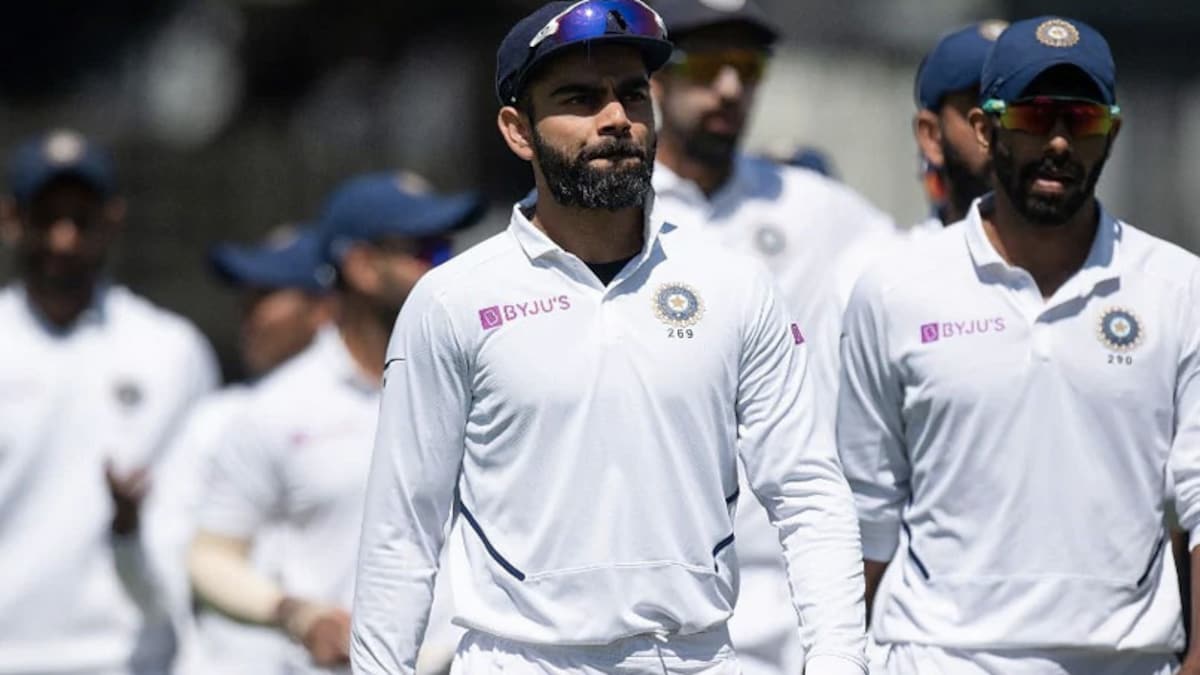Two India Squads Playing Simultaneously Could Become Norm, Says Virat Kohli
India captain Virat Kohli said two squads playing simultaneously at different places could become a norm given the bio-bubble environment for players that affects their mental health.
- Press Trust of India
- Updated: June 02, 2021 08:10 pm IST

Highlights
-
Virat Kohli said two squads playing simultaneously could be a norm
-
Kohli said separate squads could help manage players' mental health
-
While Indian Test team tours UK, limited-overs team will tour Sri Lanka
Two India squads travelling to different places at the same time could become a norm in the mentally draining world of bio-bubbles that cricketers are forced to live in amid the COVID-19 pandemic, hinted India captain Virat Kohli on Wednesday. While the Kohli-led side leaves for the WTC final against New Zealand and a five-Test series against hosts England, a second string India squad will soon be picked for the limited-overs tour of Sri Lanka in July. With bio-secure environment taking a toll on the players mentally, Kohli said they will be given breaks to recover from that and not just for workload management.
"With the current structure and the kind of structure that you're competing inside for a long period of time, it's very difficult for the players to stay motivated and find the right kind of mental space," Kohli said in the pre-departure press conference.
"You know just confined in one area and just doing the stuff, day in day out when you're dealing with high pressure situations. So, this (two squads) will definitely become a norm for the future," he added.
The Indian team had to quarantine for 14 days in Mumbai and will do a soft quarantine in the UK upon their arrival. Players around the world have spoken about challenges of playing tournaments after tournaments in bio-bubbles.
"Apart from the workloads, the mental health side of things will also come into the picture big time because you don't have an outlet at all," said Kohli.
"In today's day and age you literally go into the ground, come back to the room, and you have no space where you can just disconnect from the game and just go out for a walk or go out for a meal or a coffee and say, 'okay, let me refresh myself, let me just get away from the game a little bit'.
"So I think this is a huge factor which should not be neglected. Because as much hard work as we've done to create this team, you don't want players falling out because of the mental pressures and not having the capacity or the space to express themselves."
Kohli endorsed players asking for breaks to address mental health issues.
"So I think there has to always be a channel over which the management has left it for players to approach them and tell them, 'Look, I'm not feeling right in the head, and I just need a break and I just want to disconnect from the game'.
"So I think that's going to be a huge factor and I'm sure that the management understands that," said the skipper.
Sitting beside Kohli, head coach Ravi Shastri said the current schedules are punishing and the world of quarantines is making players' jobs tougher.
"You are not just talking about the World Championship. But if you want to add that as well, you have to play five Test matches in this environment in six weeks. It's no joke," Shastri said.
"I mean even the fittest will need a break. More than the physical part, it's the mental part, like he had (Virat) mentioned, you know you can be destroyed mentally.
"Being asked to do the same things day in day out and then go and perform. And it's not easy to recover if, especially if you've had a bad day.
"It's important that you shuffle the guys around and keep them mentally fresh," said the coach.
Like Kohli, Shastri too said that playing with two squads in different locations regularly is a possibility in the long run.
"Well you never know. At the moment it's happening because of the current situation and restriction in travel and things of that sort. But you never know. In the future if you want to expand the game, especially in the shorter of formats, then it could be the way to go," Shastri said.
"You know, why not, when you have that much volume of cricketers and if you want to spread the T20 game, across the globe, then that could be the way ahead because if you're talking of Olympics in four years or eight years' time, you need more countries to play the game. So that could be a way forward," Shastri added.
